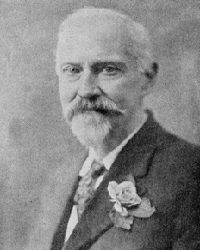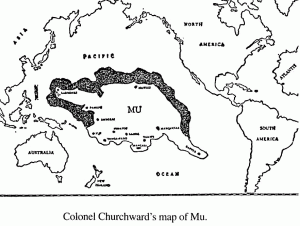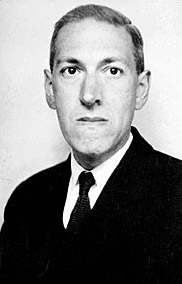Pauwels & Bergier
Two Atlantises
Two Atlantises have been proposed by some commentators in order to explain some of the difficulties in Plato’s tex t. While the concept has been adopted in principle, the locations chosen vary.
Lewis Spence was probably the first to suggest the idea, followed by D. Duvillé and>Denis Saurat while more recently Jürgen Hepke has followed suit, suggesting that the first Atlantis was situated in the Bermuda Triangle and was destroyed around 9500 BC(a) and the second in the Mediterranean region which met its end circa 1250 BC(b)!<
The Russian Atlantologist Vladimir Scherbakov has promoted the idea of one Atlantis in the Atlantic and a second one incorporating major cities in the Eastern Mediterranean. He believed that migrants from the Atlantic original had peopled the second one.
It is clear that Plato describes two Atlantises separated by both time and geography. One was the Stone Age culture, briefly referred to by Plato and the other was the Bronze Age society that he describes in much greater detail. This apparent contradiction is easily explained if we accept that the original Atlantis was preliterate and in common with all very ancient peoples their achievements would have been clouded by the mists of time before committed to writing. Not unreasonably, to make up for a lack of detail, Plato would have overlaid the oral tradition with the attributes of an advanced civilisation of his own era, something that his audience could identify with. Such a literary device would have been within the bounds of artistic licence at that period.
Pauwels & Bergier in their book, The Morning of the Magicians[910], also proposed two Atlantises, an earlier one at Tiwanaku in the Andes and a later one in the Atlantic destroyed by “waters from the north”, recorded as Noah’s Flood in the Bible!
Not content with two Atlantises, Diego Marin, Ivan Minella & Erik Schievenin went one further in 2013, when they proposed three Atlantises in their book The Three Ages of Atlantis[972].
(a) http://web.archive.org/web/20170320150848/http://tolos.de/Book2.htm *
(b) http://web.archive.org/web/20170716221143/http://www.tolos.de/History%20E.htm (See Book 6) *
Churchward, ‘Colonel’ James
 ‘Colonel’ James Churchward (1851-1936) was a British engineer and patent holder. However, his most famous invention was ‘the land of Mu‘, an imaginary counterpart of Atlantis, supposedly situated in the Pacific. He wrote six books [0233]+[0234]+[1215]+[1945]+[1946]+ between 1926 and 1935 to promote this brainchild. Although based on material dating back to 1927 the last volume, Books of the Golden Age, was not published until 1997.
‘Colonel’ James Churchward (1851-1936) was a British engineer and patent holder. However, his most famous invention was ‘the land of Mu‘, an imaginary counterpart of Atlantis, supposedly situated in the Pacific. He wrote six books [0233]+[0234]+[1215]+[1945]+[1946]+ between 1926 and 1935 to promote this brainchild. Although based on material dating back to 1927 the last volume, Books of the Golden Age, was not published until 1997.
He also gave more than two dozen radio lectures on New York’s station WNYC between 1924 and 1925(q).
Churchward claimed to have gained his knowledge of Mu from the so-called Naacal Tablets which were translated for him by an Indian priest. Jason Colavito has recently expanded on this matter in a recent blog(i).
Readers might be interested in reading a newspaper report from 1932 in which he claimed the existence of flying machines in ancient India(k). This idea was subsequently adopted by Pauwels & Bergier, copied by Von Däniken and more recently stolen by Hatcher Childress. Colavito has written a valuable piece(l) on the origin and evolution of the story of vimanas in ancient Indian literature and debunked the suggestion that they were some early UFO.
 On April 23, 1933, The New York Times described “Mr Churchward is an authority, the only authority there is, on the Lost Continent of Mu. It is, in fact, his continent, by all the rights there are of discovery, invention, evidence, conviction of reality that deal with intangible things.”
On April 23, 1933, The New York Times described “Mr Churchward is an authority, the only authority there is, on the Lost Continent of Mu. It is, in fact, his continent, by all the rights there are of discovery, invention, evidence, conviction of reality that deal with intangible things.”
The kindest thing that I can say is that Churchward’s most valuable contribution to literature was A Big Game and Fishing Guide to Northeastern Maine, published in 1898. Two of the many gems offered by Churchward are (1) “Christ’s last words on the cross were in the language of Mu” and (2) “the sun is not a superheated body; it is a cool body but highly magnetic”(b) !!!
Fortunately, geological knowledge today clearly demonstrates that Churchward’s vast island of Mu is as impossible as Donnelly’s Atlantic Atlantis. However, although Churchward also accepted that Atlantis was a mid-Atlantic continent, I am tempted to think that he invented Mu in the Pacific in the hope of emulating Donnelly’s publishing success with Atlantis. A critical review(h) of Churchward’s theories, in French, is available on the Internet.
James Churchward’s younger brother, Albert (1852-1925)(right), was a Masonic writer, who was the author of The Origin and Evolution of the Human Race[0903]. It is interesting that this book, now available online(j), does not refer to either Mu or Atlantis.
An extensive paper written by his god-daughter, Joan Griffith, about his life and work is available online(a). Churchward’s great-grandson, Jack, also has a website(d) dedicated to telling his story. This includes an acceptance(s) that the rank of ‘colonel’ used by his great-grandfather was, on balance, another invention.>However, both Jack (Podcast 20)(r) and Joan(a) have defended the authenticity of Churchward’s military background with newspaper clippings and an article that was “published in 2001 by the World Explorer Club and authored by Joan Griffith entitled, “James Churchward and His Lost Pacific Continent — Lost Continent or Lost Cause?”
The article asserts that Peter Tompkins in the “Mysteries of the Mexican Pyramids” reveals that James was a member of British Intelligence. Due to the classified nature of his service, the British government has refused to acknowledge that he served. This is the reason that nobody can see his real records. If this were true it would be very convincing.”
At this point I was pondering on why it would still be a military secret a century later and decided to look at Jack’s Podcast 21(s) and found there a most startling admission by Jack Churchward;
“In summary, I believe that the evidence shows that James Churchward was not a Colonel in the British Army and the use of the title was unearned. While this is the conclusion I reached given the evidence, I would be absolutely dumbfounded if someone did not disagree. If I have overlooked something, I am more than willing to re-evaluate the subject with any new evidence that is presented.
On the other hand, James, as a showman, needed the title to create the atmosphere and keep his audience enthralled. At the end of the day, if James used the title to bolster his presentation and sell himself to make a living, then who am I to judge him?”
If Jack is correct you can reasonably ask ‘what else did the ‘colonel’ lie about?’<
Jack also admitted(m) the unreliability of James’ translation of the Troano Manuscript, influenced as it was by the earlier seriously flawed attempts by Bishop Diego De Landa (1524-1579), de Bourbourg and LePlongeon. Jack has also written a couple of articles comparing the ideas of Churchward and LePlongeon(o).
Some years ago Frank Joseph wrote an article for Atlantis Rising magazine #30 in which he claimed that Churchward had been ‘corroborated’ but failed to mention that this corroboration only took place in Joseph’s fertile imagination! In fact, the article title is misleading and in my opinion, its content is just blather padded with waffle(p).
Most of Churchward’s Mu books can be read or downloaded online using the links below.
[0234]+https://archive.org/details/ChildrenOfMu
[1215]+Sacred Symbols of Mu Index (archive.org)
[1945]+ https://archive.org/details/cosmicforcesofmu00chur_2/page/10/mode/2up
(a) https://www.bibliotecapleyades.net/arqueologia/esp_churchward02.htm
(b) https://www.bibliotecapleyades.net/arqueologia/esp_churchward04.htm
(d) https://www.my-mu.com/index.html
(e) https://www.sacred-texts.com/atl/ssm/index.htm
(f) Wayback Machine (archive.org)
(g) https://campbellmgold.co.uk/archive_esoteric/lost_continent_mu_churchward_1931.pdf
(h) http://ukko.free.fr/mu.htm (French)
(i) https://www.jasoncolavito.com/1/post/2013/01/the-naacal-tablets-and-theosophy.html
(j) https://www.cedarcitylodge.org/books/origin_and_evolution.pdf
(k) https://trove.nla.gov.au/ndp/del/article/73524361?searchTerm=Atlantis discovered&searchLimits=
(m) https://blog.my-mu.com/?p=2272
(n) https://www.globalgreyebooks.com/sacred-symbols-of-mu-ebook/
(o) Reconciling the Evidence Part 1 : My-Mu Blog
(p) Atlantis Rising magazine #30 http://pdfarchive.info/index.php?pages/At
(q) https://www.wnyc.org/story/179746-wnyc-and-land-mu/
Lovecraft, Howard Phillips
Howard Phillips Lovecraft (1890-1937) was an influential author of horror fiction. Although he clearly stated that he did not accept the reality of Atlantis he was quite happy to use elements of Plato’s tale in his own short stories. Nevertheless, his friend Robert E. Howard, the creator of Conan the Barbarian, appears to have accepted the existence of an early civilisation and to have incorporated that idea into his novel Atlantis Found.
friend Robert E. Howard, the creator of Conan the Barbarian, appears to have accepted the existence of an early civilisation and to have incorporated that idea into his novel Atlantis Found.
Some years ago Jason Colavito wrote an article(a) outlining how fictional elements in some of Lovecraft’s books from as early as 1927 appear to have ‘inspired’ much of von Däniken’s ‘ancient astronaut’ ideas! Furthermore Colavito has proposed(b) that Lovecraft’s work had also influenced Pauwels & Bergier, authors of Morning of the Magicians, another book that was plundered by von Däniken.
(a) https://www.jasoncolavito.com/charioteer-of-the-gods.html
(b) https://www.jasoncolavito.com/pauwels-bergier-and-lovecraft.html
